Ph.D. Program in Urban and Environmental Planning and Policy
Today's complex environmental, social and urban issues are best understood by researchers who can work across disciplinary boundaries, and who understand the relationship of research to action. The Urban and Environmental Planning and Policy (UEPP) doctoral program at UCI trains scholars in the analysis of social problems related to the built, natural, and institutional environments. The UEPP Ph.D. is based on the department's internationally prominent research and teaching strengths in environmental policy, urban and community development and design.

What Sets Us Apart?
- Interdisciplinary scholarship, with faculty degrees in architecture, business, economics, geography, law, planning, policy, political science, sociology
- Mission and vision to conduct high quality research and make the world a better place
- Faculty who recognize the benefits of and provide advisement for both qualitative and quantitative research
- Commitment to career-appropriate guidance and support for students
- Excellent morale and sense of community among students
- Good financial support , equitably distributed
- Strong placements in R1 universities, government positions and nonprofits
The Ph.D. Program in Urban and Environmental Planning and Policy (UEPP) is a part of the Department of Urban Planning and Public Policy (UPPP). We invite you to dive deeper in to learn more about UPPP. Take a look at the message from our Chair, Professor Walter Nicholls , and explore our News section and Events listing, where you'll find highlights of the many accomplishments and activities being undertaken by our faculty, students, and alumni. Our Research page showcases centers and initiatives UPPP faculty and students engage in to address significant issues throughout the world.
Note: The official name of our department changed in 2017 from "Planning, Policy, and Design" to "Urban Planning and Public Policy." The name of the doctoral degree conferred is now "Ph.D. in Urban and Environmental Planning and Policy."
Follow us on social media
- Meet CED Alums
- Work at CED
- Undergraduate Majors + Minors
- Graduate Programs
- Concurrent Degrees
- Certificates
- Summer Programs
- Study Abroad
- Undergraduate Admissions
- Graduate Admissions
- Fees + Financial Aid
- CED Undergraduate Advising
- Graduate Advising
- Centers + Institutes
- Climate Solutions
- Equity + Social Justice
- Technology + Material Innovations
- Publications
- Research Collaborations
- Environmental Design Archives
- Student Work
- Student Organizations
- Student Support
- Awards, Scholarships and Fellowships
- Academic Student Employment
- Student Fees and Waivers
- IT + Computing
- Fabrication + Materials
- Environmental Design Library
- Building Safety
- Facility Services
- Careers + Work Opportunities
- Commitment to Diversity
- Accreditation and Licensure
- Master of Architecture (MArch)
- Master of Advanced Architectural Design (MAAD)
- Master of Science in Architecture
- PhD in Architecture
- Bachelor of Arts
- Minor in Environmental Design and Urbanism in Developing Countries
- Minor in the History of the Built Environment
- Minor in Social and Cultural Factors in Environmental Design
- Minor in Sustainable Design
- + About LAEP
- Master of Landscape Architecture
- Minor in Landscape Architecture
- + About DCRP
- Master of City Planning
- Bachelor of Arts in Urban Studies
- Faculty Work
- Studio Work
- + About IURD
- About MRED+D
- + BA in Sustainable Environmental Design
- Make a Gift
- For Students
PhD in City + Regional Planning
Berkeley's PhD in City & Regional Planning provides training in urban and planning theory, advanced research, and the practice of planning.

About the Program
Established in 1968, the program has granted more than 160 doctorates. Alums of the program have established national and international reputations as planning educators, social science researchers and theorists, policy makers, and practitioners. Today, the program is served by nearly 20 city and regional planning faculty with expertise in community and economic development, transportation planning, urban design, international development, environmental planning, and global urbanism. With close ties to numerous research centers and initiatives, the program encourages its students to develop specializations within the field of urban studies and planning and to expand their intellectual horizons through training in the related fields of architecture, landscape architecture and environmental planning, civil engineering, anthropology, geography, sociology, public policy, public health, and political science.
Completing a PhD in City & Regional Planning at UC Berkeley usually takes five years. The university requires all doctoral students to fulfill a minimum residency requirement of two years and 48 units of coursework. Full-time students are expected to take four courses, or 12 units, per semester. For the PhD in City & Regional Planning, students must complete various program requirements, including courses in planning and urban theory; research methods courses; and preparation and completion of two fields of specialization. They must also successfully complete an oral qualifying examination, which allows them to advance to candidacy and undertake dissertation research. A PhD is awarded upon completion of a written dissertation approved by the faculty supervisors of the dissertation.
The PhD program encourages its students to build intellectual community and to participate in national and international venues of scholarship. Doctoral candidates regularly present their research at the annual conferences of the Association of Collegiate Schools of Planning, Association of American Geographers, Association of European Schools of Planning, World Planning Schools Congress, Urban Affairs Association, and American Anthropological Association. They organize and participate in a weekly research colloquium and manage the Berkeley Planning Journal , a peer-reviewed academic publication. Such activities utilize the incredible intellectual resources available to doctoral students at UC Berkeley, both within their departments and programs and across the campus.
Financial Aid + Admissions
Admission to the PhD program is highly competitive. Applicants are required to have completed a master's degree in planning or a related field. They are expected to demonstrate capacity for advanced research and to present a compelling research topic as part of their application. Once admitted to the program, students are eligible to compete for various university fellowships, including the Berkeley Fellowship, Cota-Robles Fellowship, and the Foreign Language and Area Studies Fellowship. Students of the program have also been successful in securing funding for dissertation research from the National Science Foundation, Social Science Research Council, and the Fulbright scholarships.
The Department of City & Regional Planning and UC Berkeley offer multiple types of financial support to its graduate students.
Please note that admission decisions are not made by individual faculty, but rather an admissions committee. Our PhD admissions process begins with three initial reviews of your application: the two faculty members you list as preferred advisors and one member of the PhD admission committee. The admission committee then meets to review all applications as a cohort and make admission/denial decisions. More information can be found on the department admissions page .
Prerequisites
The principal admission requirements to the doctoral program in City & Regional Planning are overall excellence in past academic work and research, demonstrated creativity and intellectual leadership in professional activity, and the strong promise of sustained intellectual achievement, originality, and scholarship. The emphasis in the doctoral program is upon scholarship and research. At the same time, because the doctorate is offered in the context of a professional school, doctoral students are challenged to undertake applied research relevant to city and regional planning and policy problems. If you do not want to teach in planning or a related field, or to do advanced research, please reconsider applying to this program. Most doctoral students enter the program with a master's degree in planning or a related field. The Master of City Planning is regarded as a terminal professional degree, and is not comparable to mid-study Master of Arts or Master of Science degrees offered in anticipation of the doctorate.
Admission to the doctoral program is very competitive. Only six to eight students are admitted each year, sometimes from a pool of as many as 80 applicants. For all applicants to the doctoral program (even those required to take an English-language competency exam (TOEFL, TOEFL CBT, iBT TOEFL, or IELTS) the Graduate Record Examination (GRE) is optional; although prospective students who choose to take the GRE should do so before December to ensure timely receipt of scores. Applicants must also secure at least three letters of recommendation that can explicitly evaluate their intellectual capability and past research and academic work.
Please note that admission decisions are not made by individual faculty, but rather an admissions committee. DCRP's PhD admissions process begins with three initial reviews of your application: the two faculty members you list as preferred advisors and one member of the PhD admission committee. The admission committee then meets to review all applications as a cohort and make admission/denial decisions.
Designated Emphases
Many PhD students choose to pursue one or more of the designated emphases (DEs) offered through programs across campus. These DEs are unrelated to the outside field required by the City & Regional Planning PhD, and can be thought of instead as elective "minors" which provide opportunities for focused interdisciplinary work, mentorship, conference funding, research fellowships and an extra credential along with the doctoral degree. Common DEs pursued by DCRP PhD students include:
- Global Metropolitan Studies (GMS)
- Science and Technology Studies (STS)
- Development Engineering (DevEng)
- Women, Gender, and Sexuality Studies (WGS)
- Political Economy
- Film & Media
- Critical Theory
Photo Modal
University of Southern California
Doctoral and Ph.D. Programs
Ph.d. in urban planning and development (upd).
- Attend an information session
- Request Information

Create new knowledge for vibrant urban life.
The Ph.D. in Urban Planning and Development prepares students to contribute new ideas and innovate solutions to contemporary urban problems. You’ll obtain a solid foundation from which to launch your career through advanced courses in all intersecting facets of urban studies. And you’ll work on research with a direct impact on the world around us. With a focus on critical discourse and inquiry paired with analytical and theoretical training, you’ll develop the skills necessary to contribute to solutions that address the world’s most pressing urban planning and development issues.
Why choose Price?
USC Price offers a supportive academic environment where you can contribute to the field alongside leading scholars as you pursue your Ph.D. in urban planning and development.
A Research Hub
Ph.D. students focus on and develop substantive expertise in core areas that leverage the USC Price School’s research strengths and renowned centers — including those focused on transportation, sustainable development, and spatial science.
All Ph.D. students are guaranteed at least four years of funding through fellowships and graduate assistantships that provide year-round full tuition, a competitive stipend, and health and dental insurance. In addition, all fifth-year students have been funded internally or externally, with the program’s assistance.
Career Launching
Most students present their work at conferences and publish papers during the program.
Life in Los Angeles
Los Angeles provides a rich, complex ecosystem for the study of planning as well as an exciting, enriching place to call home.
Attend an Info Session
Join faculty, students, and alumni for live information sessions to learn more about the application process, financial services, and program curriculum.
Upcoming Sessions
No sessions found. This block will not display on the site until there are upcoming sessions for this program.

- UPD Curriculum

- UPD Learning Objectives
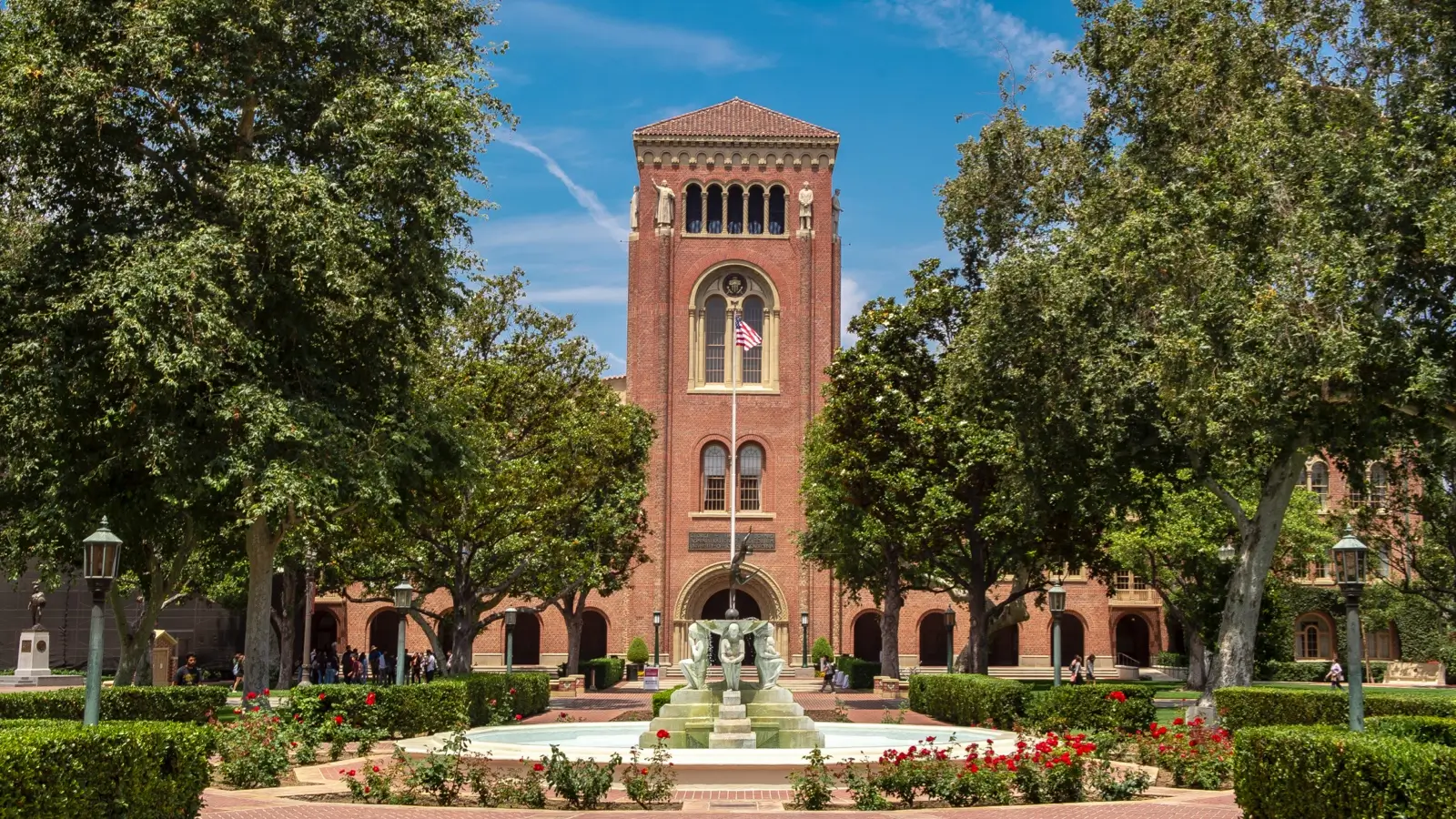
- Ph.D. Admissions
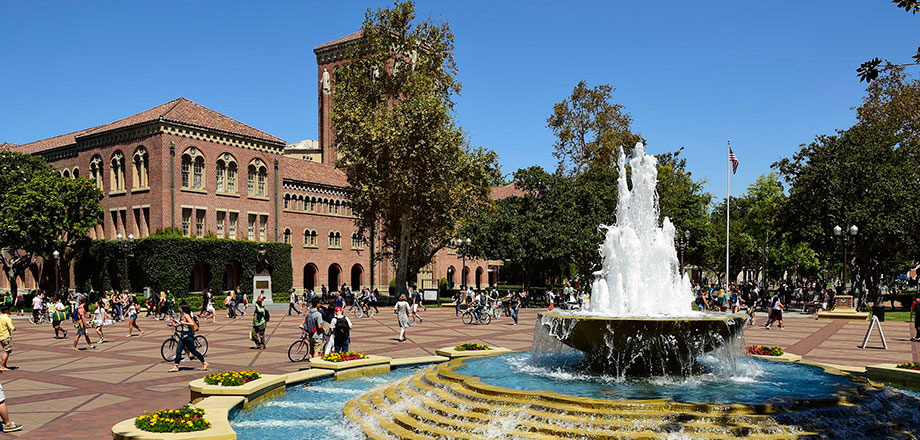
- Ph.D. Funding
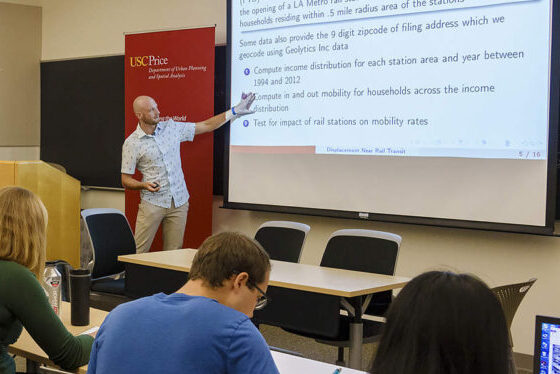
- Select First Year Placements
Financial Aid
All Ph.D. students are supported for four years through a combination of fellowships and graduate assistantships that provides year-round full tuition, a competitive stipend, and health and dental insurance.
Fields of Study
Through advanced theoretical core courses in critical thinking, planning theory, urban development, and research methodology, Ph.D. in Urban Planning and Development students gain a strong foundation from which to launch their scholarly career and develop an area of expertise.
Working closely with faculty mentors, Ph.D. in Urban Planning and Development students focus on and develop substantive expertise in core areas that leverage the Price School’s renowned research strengths in fields such as:

- Arts, culture, and community development
- Climate change and sustainability
- Data science and spatial analysis
- Land use and urban design
- Planning theory and social justice
- Real Estate
- Transportation and Mobility
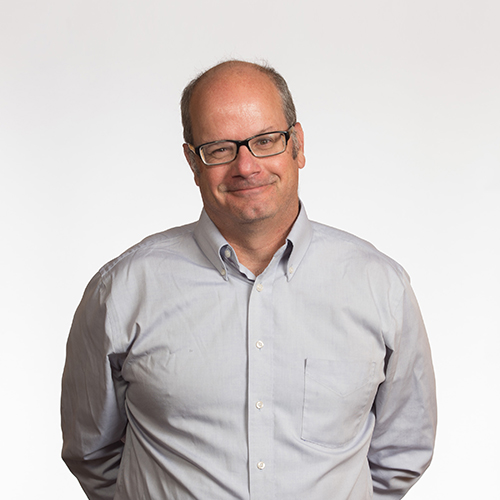
John Romley , Ph.D.
Associate Professor of Public Policy and Pharmaceutical & Health Economics Faculty Director, PhD Programs
For admissions information, please email [email protected]
In this section:
- Ph.D. Student Job Market Candidates
- UPD Ph.D. Students
- Full-Time Faculty
- Research at USC Price
School of City & Regional Planning
College of design.
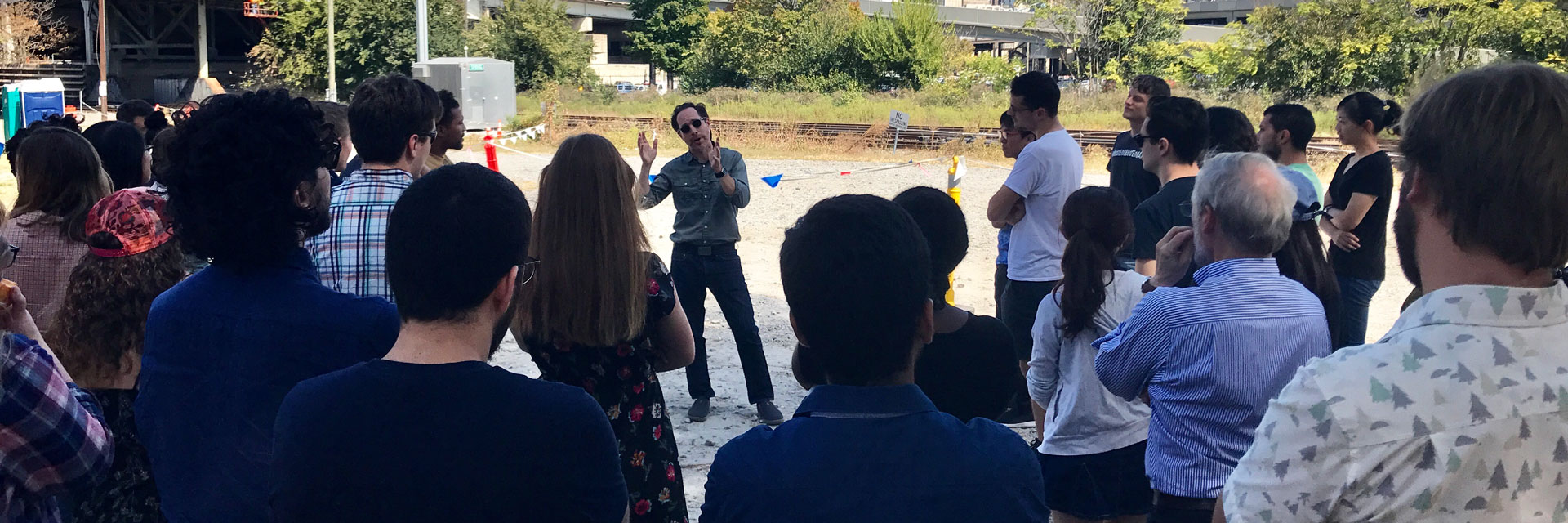
Ph.D. in City and Regional Planning
Doctoral study in city and regional planning combines research and theory in an applied professional field. We link theory to practice, allowing students to explore the most important issues facing rapidly changing urban areas today.
We build socially, economically, and environmentally resilient communities through interdisciplinary study and research. Our doctoral students consistently graduate to top academic and other professional careers. We welcome your interest and inquiries.
Meet Us to Learn More!
Design your very own Open House experience by selecting the online and on-campus events that align best with your interests, questions, and availability. We have drafted a menu that allows you to engage with program directors, faculty, current students, and alumni, learn interactively about our programs, get insights into the application process and funding opportunities, and get a taste of our lecture series, signature events, and courses. All of our events allow for your unique individual questions to be answered. Click the link below to RSVP.
Extending the Horizon of Planning
Each year, the Ph.D. program seeks applicants with research interests that correspond closely to those of our faculty. Our faculty engage in research and teaching across the diverse spectrum of planning, including economic and community development, housing, land use, environment, transportation, planning theory, collaborative governance, and urban design.
Some of the cutting-edge issues they focus on include climate change, urban analytics, economic resilience, megaregions, disaster planning, and healthy cities. The three to five new Ph.D. students that we admit annually work closely with their faculty advisors to develop a course of study that will extend the horizons of knowledge available in our profession.
Besides their major area of focus in planning, students identify a minor area outside of planning to augment their intellectual foundation. Students are able to take courses in other degree programs at Georgia Tech, as well as at other research universities in Atlanta, including Emory University and Georgia State University.
If you apply to our program, we will want to know what motivates you to make the significant commitment to pursue a Ph.D. in the field of planning, as well as why you see Georgia Tech as an appropriate home to fulfill that commitment.
Program Requirements
The doctoral program has three main components: the coursework (which includes the program core, a major field, and a minor field); the comprehensive exams; and the dissertation.
The program of study requires two years of residency minimum (no fewer than four semesters enrolled for at least six credit hours each, excluding summer) devoted to coursework and other preparation for advancement to candidacy. Successful students demonstrate mastery in these areas and are prepared to pursue upper-level careers in government, business, research, and academia. Full details can be found in the Ph.D. Program Handbook .
Coursework involves a specialized program of study designed by the student and faculty focusing on a major field within city and regional planning, and on a minor field outside the College of Design.
Students complete at least 46 credit hours in their major field, minor field, and the Ph.D. program core requirements, and in various elective courses.
Students complete a minimum of 15 semester-hours of study in their major field, a minimum of 9 hours in their minor field, and a minimum of 19 hours in the program core.
Descriptions of courses offered in city and regional planning and other programs in the College of Design can be found in the Institute’s course catalog .
Major Fields
Upon admission, each Ph.D. student chooses a major area of study. Any change to the major requires review and approval by the Ph.D. faculty.
To meet the major requirement, students must have satisfactory performance (B or better letter grade) in courses composing not fewer than 15 credit hours. The student’s Advisory Committee may require other courses within the College or other units within the University System of Georgia consistent with the student’s expressed interest in her selected field of concentration.
The composition of chosen courses should provide a full background and preparation in both the substance of the field of study, and appropriate methods of inquiry and analysis.
Examples of majors pursued by doctoral students in the School of City and Regional Planning include:
- Urban climate change management
- Built environment and transportation planning
- Equity and social justice planning
Minor Fields
Students choose a minor to demonstrate competence and inquiry in an area of study related to, but outside of, the School of City and Regional Planning.
To meet the minor requirement, students must have satisfactory performance (defined as a B or better letter grade) in courses composing not fewer than 9 credit hours.
Examples of minors outside the School of City and Regional Planning include:
- Regional economics
- Public health
- Water resources management
Program Core
The core course requirement provides students with a basic knowledge of planning theory, regional theory, and research design and methods.
The Ph.D. seminars acquaint students with questions, methods, and paradigms of research and with the modes of scholarship and pedagogy associated with the city and regional planning field.
Requirements include:
- Advanced Planning Theory (three credit hours)
- Advanced Urban and Regional Development Theory (three credit hours)
- Quantitative Research Design and Methods (three credit hours)
- Qualitative Research Design and Methods (three credit hours)
- Ph.D. Foundations Seminar (one credit hour)
- Ph.D. Planning Seminar (one credit hour each year)
Comprehensive Examination
Once students have completed their coursework, with the exception of on-going attendance in Seminar in Advanced Research Design and Methods, they are ready to take the comprehensive examinations.
Students are tested in five areas: the student’s major and minor fields, and three core area exams in planning theory, regional economic theory, and research design and methods. Core comprehensive exams can be waived by earning a letter grade of ‘A’ in a core course.
The examination process includes both written and oral testing of a student’s mastery of the subjects. Upon successful completion, the student moves on to the dissertation phase of the program.

Dissertation
The doctoral dissertation is a written piece of original scholarship that represents a significant new perspective or contribution in the candidate’s chosen field of study. The dissertation must be relevant to the field of planning, and either an addition to the fundamental knowledge base in the field of study or a new and better interpretation of facts already known. It must demonstrate that the candidate possesses powers of original thought, talent for research, understanding of theory and methodology, and ability to organize and present findings.
Application for Admission Details
All application materials are submitted using the Georgia Tech Graduate Studies and Admissions Online System. We will begin review of applications for admissions on January 16, 2025 . In most cases, students are accepted for and enter the program in the Fall semester.
Applicants admitted to the PhD Program normally will have completed the requirements for the Master of City and Regional Planning (MCRP), or a related Masters degree program. Students from allied fields are also encouraged to apply. In exceptional cases, students with a Bachelors degree only may be accepted directly into the PhD Program but will be required to complete the Masters in City and Regional Planning degree before advancing to candidacy for the PhD degree. PhD students are eligible for an accelerated MCRP curriculum, as outlined in the Ph.D. Program Handbook
Application materials:
Application Forms
Application Fee.
Georgia Tech offers application fee waivers to qualifying applicants. Comprehensive information on whether you qualify for the Institute-sponsored application fee waiver program and how to request one if you do is available here . The School of City and Regional Planning is additionally offering a limited number of department-sponsored application fee waivers to applicants who do not fall in the waiver categories described ; If paying the application fee poses an undue financial burden to you and you do not qualify for an Institute-sponsored fee waiver, you may apply to be considered for a SCaRP departmental application fee waiver by completing this form before December 1st.
Three Letters of Recommendation
Examples of previous research and written works
Official transcripts from all previously attended institutions of higher learning
Statement of Purpose
Describe what you have done to prepare yourself for study in a PhD Program.
Why have you chosen to apply to the PhD program in City and Regional Planning at Georgia Institute of Technology?
What area of planning research is of particular interest to you? How might you explore this interest as a doctoral student at Georgia Tech?
Detail your academic and research goals and career plans.
Personal Biography Form
Graduate Record Examination (GRE) scores is required for admission of this program, with a minimum score of 150 (Verbal), 150 (Quantitative), and 4.0 (Analytical Writing). GRE waivers could be granted under special circumstances.
Proof of English proficiency for applicants whose first language is not English: Test of English as a Foreign Language (TOEFL). TOEFL scores of 620/261/102 or higher for the test (paper, computer, and internet tests respectively) are expected. Other evidence of English proficiency, such as provided in writing samples or oral interviews, may also be considered in determining language proficiency. Applicants having completed a Bachelors or Masters degree at a US University are not required to submit TOEFL scores. OR International English Language Testing System (IELTS) with a minimum score of 7.5. For complete outline of the English proficiency requirement and ways to get exemptions from testing, please see https://grad.gatech.edu/english-proficiency
Cost, Funding and Financial Aid
The SCaRP PhD program typically makes fully funded offers for the first four years of the program. Students receive a tuition waiver, discounted health insurance and monthly stipend while working 15-20 hours per week as graduate research assistants, as co-op students with local partners, as TAs or instructors for our graduate and undergraduate offerings. The College of Design 2024-2025 monthly stipend rates are:
- $2,302 working at 15 hours per week
- $2,770 working at 20 hours per week
The institution guidelines for stipends can be found here: Stipends for Graduate Assistantships | Policy Library .
Recent Doctoral Student Work

Student Work: AeroATL Greenway Path
Xiaofan liang, ph.d..
This dissertation introduces an exploratory framework about network duality, delving into the nuanced yet often contradictory dynamics of urban networks. This framework argues that connectivity is a multifaceted urban phenomenon embedded in network infrastructure that can induce duality, such as connecting one population while excluding the other, exhibiting influence in one system yet causing inequality in another, or co-existing with other infrastructure in some places but not others. Mitigating this duality is important for an inclusive and equitable network society. The critical inquiries are two-fold. First, what types of connectivity are prioritized or supported by urban infrastructure, for whom, at where, and at what cost? Second, what are some strategies (e.g., approaches, toolbox, and practices) that planners can use to mitigate the harmful effects of network infrastructure duality (e.g., exclusion and inequality), especially on marginalized communities?

Towards a Politics of Human Flourishing
Meaghan mcsorley, ph.d..
The purpose of this dissertation is to explore how planners can contribute to human flourishing. In the first chapter, a theoretical framework for community-level thriving is developed. The theory-building work of the first chapter bolsters several streams of planning thought by asserting that
interpersonal skills are themselves a critical method for planners to promote flourishing. The second chapter takes stock of practice around interpersonal skills by analyzing publications from the American Planning Association. Importantly, there appears to be an assumption that planners are gaining interpersonal skills during their education. The final chapter covers an exploratory, mixed methods intervention study to identify creative means of improving interpersonal skills during planning education. Ultimately, this research offers planning practitioners a framework to support community visioning conversation; identifies new pathways for scholarly research around interpersonal skills; and explores novel pedagogical methods to support students in gaining important interpersonal skills.
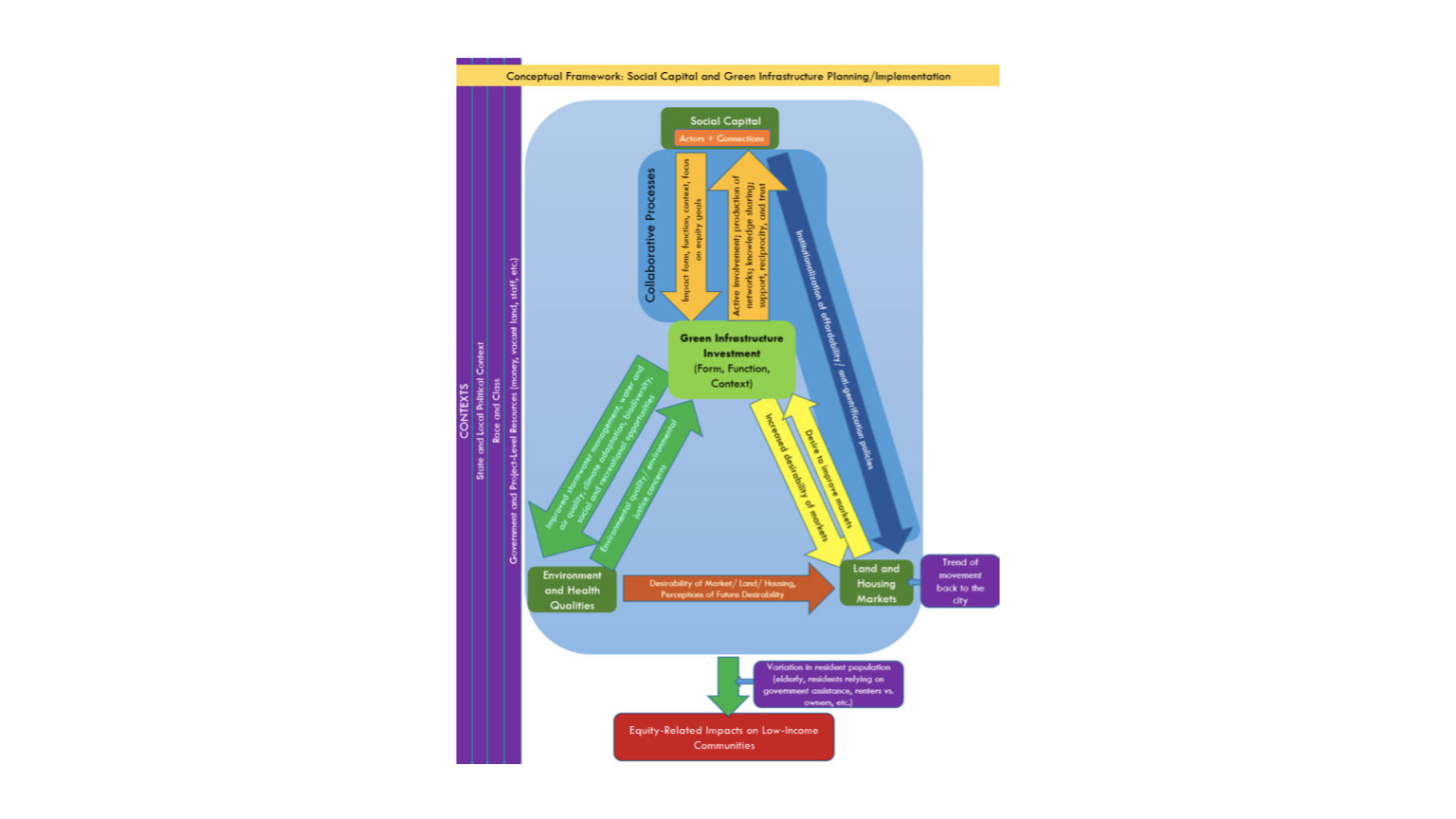
Student Work: Green Infrastructure
Jessica fisch.
Planners, policymakers, and elected officials increasingly view investments in green infrastructure, parks and other green development as opportunities for spurring economic growth, increasing environmental quality, and providing social and recreational amenities in urban areas. However, research has indicated that these projects do not adequately address equity concerns, such as access for low-income and marginalized groups, housing affordability, and displacement of existing residents. Consequently, green infrastructure projects can lead to ‘environmental gentrification.’
This dissertation work finds that green infrastructure planning may reinforce social capital, which in turn shapes green infrastructure projects and planning processes with regard to addressing housing affordability and community benefits concerns. It further finds that social capital has served as a catalyst for advocacy and the development of organizations, policies, and programs focused on housing affordability and workforce development.
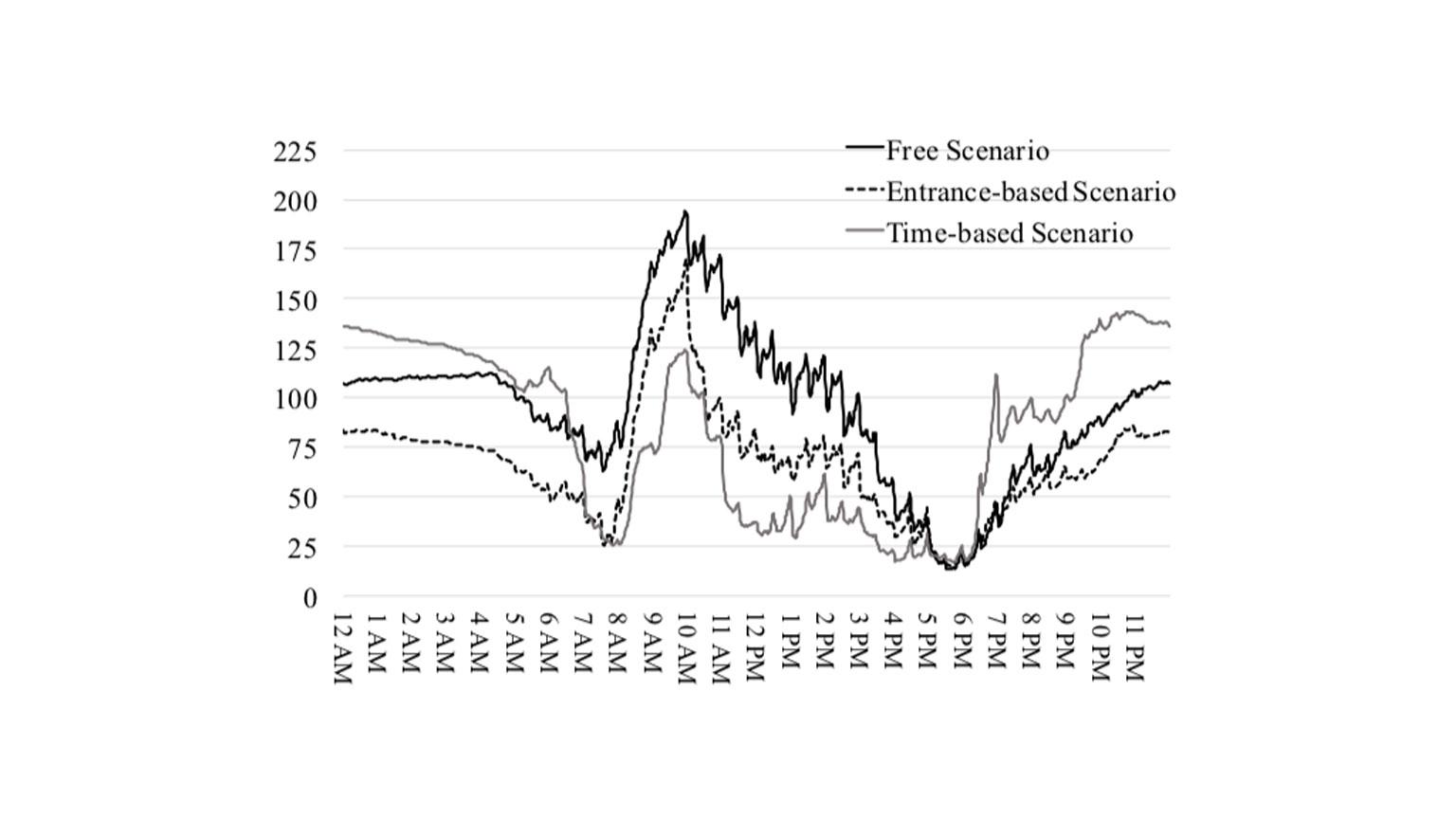
Student Work: Shared Autonomous Vehicles
Wenwen zhang.
We are on the cusp of a new era in mobility given that the enabling technologies for autonomous vehicles (AVs) are almost ready for deployment. This promising technology together with the sharing economy will enable a new travel mode – Shared Autonomous Vehicles (SAVs), a taxi service without drivers.
Recent studies have explored the feasibility, affordability, environmental benefits, and parking demand of the system in hypothetical grid-base cities. Despite these rapidly proliferating studies, it remains unclear how this affordable and environmentally friendly travel mode will influence residential and commercial location choices and potentially transform urban form. How much parking will we need and where will it be located when the SAV system is a popular mode of travel?
In this graphic, we see how the demand for parking fluctuates in response to three pricing scenarios: free parking, a flat rate, and a time-variable rate. The results of this dissertation work suggest the SAV system can reduce over 90% of parking demand for households who participate into the system and give up their private vehicles, potentially freeing substantial acreage of urban land for other critical needs.
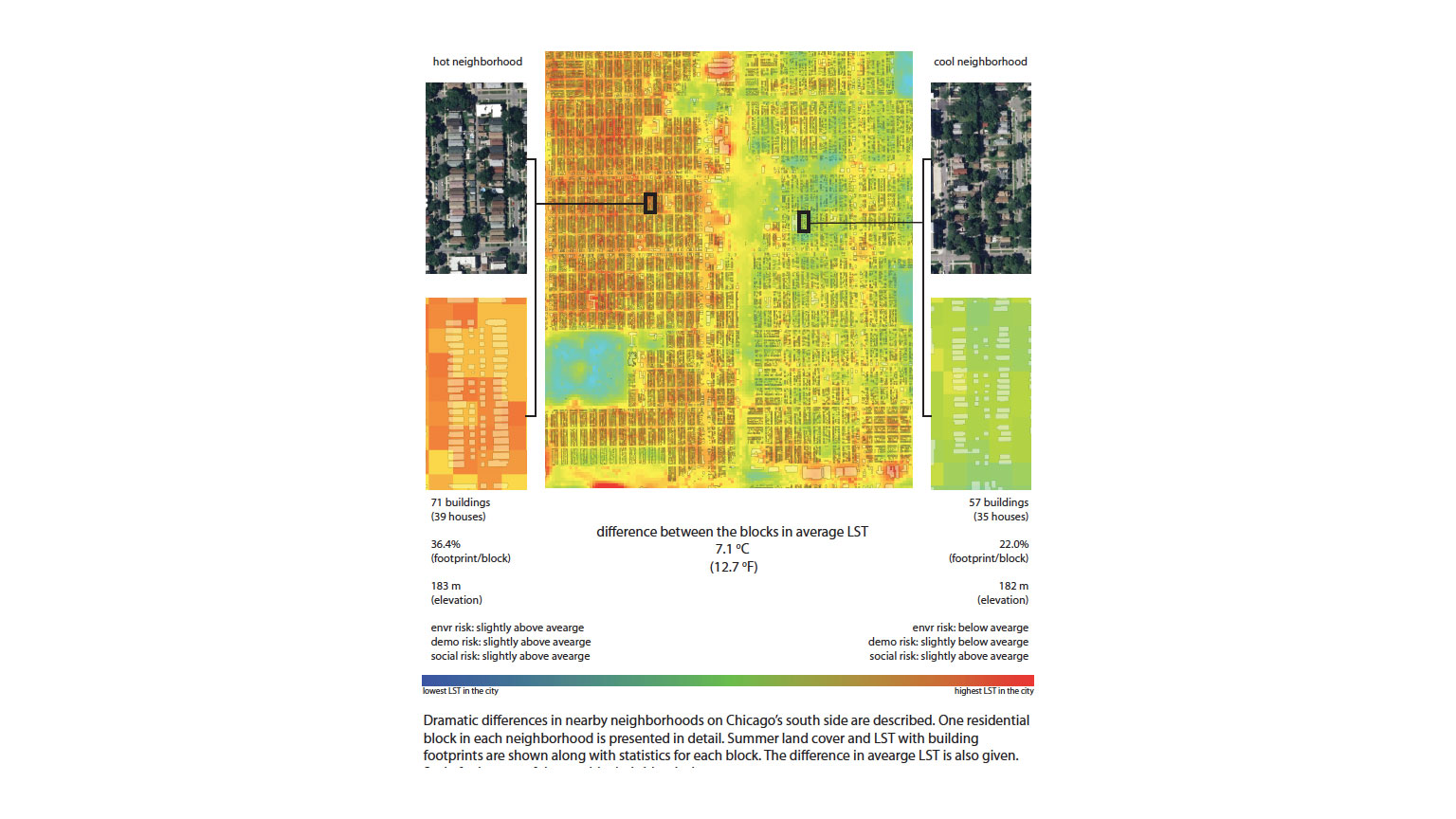
Student Work: Local Environment and Extreme Heat
Jason vargo, 2012.
This dissertation explores interactions between global trends in climate change with local influences tied to urban land covers. First, it examines temperatures during an extended period of extreme heat and asks whether changes in land surface temperatures during a heat wave are consistent in space and time across all land cover types.
Second, the influences of land covers on temperatures are considered for normal and extreme summer weather to find out which characteristics of the built environment most influence temperatures during periods of extreme heat.
Finally, the distribution of extreme heat health risks within cities are described and examined for spatial patterns. As illustrated in this graphic, the physical design of city blocks can yield very different patterns of heat exposure in cities, with direct implications for human health. The results of this dissertation are assisting cities in their development of climate change adaptation plans focused on rising levels of heat exposure.
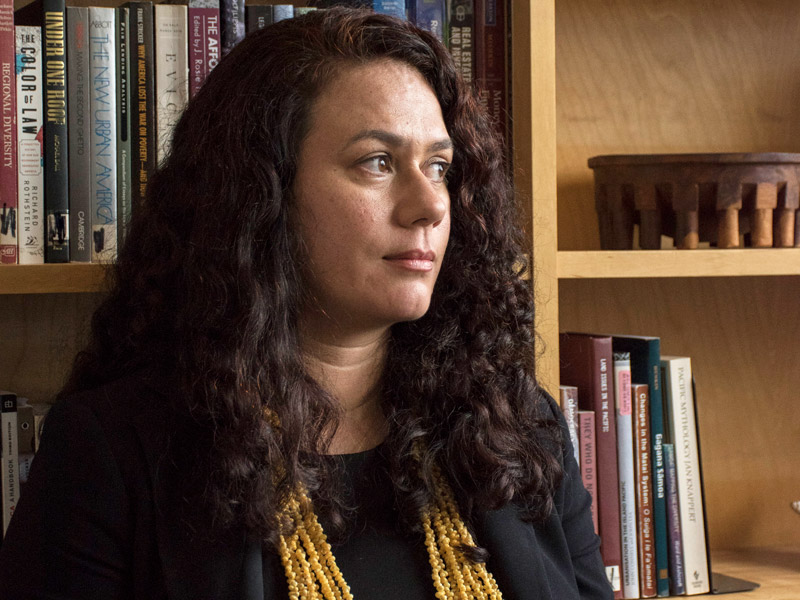
Meet the Ph.D. Program Director
Elora raymond.
Elora Lee Raymond is an urban planner and Assistant Professor in the School of City and Regional Planning in the College of Design at Georgia Tech. She is interested in the financialization of housing and property in land, displacement and dispossession through housing systems, housing and disasters, housing justice, race, segregation, and the transnational Pacific Islander community.
We know the relationship between a Doctoral Student and their advisor is crucial to getting the most out of their degree. We are here to make the most out of your PhD education. We encourage those interested in the Ph.D. program to reach out to Elora Raymond with questions about pursuing a Ph.D. at Georgia Tech.
Want to Know More?
Get answers about our programs, join our email list, sign up for an information session.

MPhil/PhD Regional and Urban Planning Studies
Introduction.
This programme offers the chance to undertake a substantial piece of work that is worthy of publication and which makes an original contribution to the social scientific study of urban planning. You'll begin on the MPhil, and will need to meet certain requirements to be upgraded to PhD status.
The MPhil/ PhD in Regional and Urban Planning Studies is part of a vibrant, innovative and interdisciplinary graduate training programme that addresses the opportunities, problems, politics and economics of urban and regional planning in cities around the world. Our emphasis is on “understanding the causes of things”, to quote the School’s motto. We do this by employing analytical skills and theoretical insights gained from the social sciences and the fields of planning, architecture, economics and the environment.
Our programme aims to produce top-quality social scientists who are able to engage with the conceptual foundations of urban planning and employ robust and appropriate methods in their research.
Entry requirements
The programme is offered in the following alternative formats:
Either the MPhil/PhD in Regional and Urban Planning
Or combined with the MSc Regional and Urban Planning Studies progressing onto the MPhil/PhD in Regional Planning (1+3 route)
MPhil/PhD in Regional and Urban Planning
The minimum entry requirement for this programme is a taught master’s degree (or equivalent), with a minimum of 65 per cent average and at least 70 in the dissertation, in a related subject.
Most students take four years to complete the PhD.
1+3 Route: MSc Regional and Urban Planning Studies (1 year) + MPhil/PhD in Regional Planning
The 1+3 route is suitable for those individuals who do not hold a relevant ESRC recognised postgraduate research training degree and is aimed at students graduating with an undergraduate degree in planning, urban geography or closely related subject. (See entrance requirements for the MSc Regional and Urban Planning Studies programme ).
The 1+3 Combined PhD Programme is only available as part of an ESRC Funded pathway.
The 1+3 scheme provides funding for a one-year research training MSc programme plus three years in a linked PhD programme. Progression from the master’s onto the PhD programme is dependent upon performance in the master’s programme (Students must score 65 per cent overall and at least 70 in their dissertation to comply with the Department’s usual PhD entry criteria).
Once on the PhD Programme, 1+3 students will follow the same programme structure as ordinary PhD students but adjusted to account for courses already taken on the MSc.
In practice, most students take four years to complete the PhD in addition to the year of study for the relevant MSc.
How to apply
To apply for the 1+3 route, an application must be submitted for the relevant master’s programme, including a research proposal for the PhD aspect of the pathway. Applicants must also indicate their wish to be considered for the 1+3 pathway and associated funding within their personal statement. If you apply for the PhD programme directly, you won't be considered for the 1+3 pathway.
Please select your country from the dropdown list below to find out the entry requirements that apply to you.
English language requirements
The English language requirement for this programme is Research . Read more about our English language requirements .
Competition for places at LSE is strong. So, even if you meet the minimum entry requirements, this does not guarantee you an offer of a place.
However, please don’t feel deterred from applying – we want to hear from all suitably qualified students. Think carefully about how you can put together the strongest possible application to help you stand out from other students.
Programme content
In addition to progressing with your research, you are expected to take the courses listed below. You may take courses in addition to those listed but must discuss this with your supervisors.
One of these two courses:
Staff / research students seminars, doctoral research and professional development, courses to the value of one unit from the list of options on the relevant msc degrees, relevant advanced research method courses to the value of one unit from the following:, applied quantitative methods, techniques of spatial economic analysis, fundamentals of social science research design, qualitative research methods, doing ethnography, qualitative text and discourse analysis, survey methodology, causal inference for observational and experimental studies, quantitative text analysis, programme regulations at lse.
For the latest list of courses, please go to the relevant School Calendar page .
A few important points you’ll need to know:
We may need to change, suspend or withdraw a course or programme of study, or change the fees due to unforeseen circumstances. We’ll always notify you as early as possible and recommend alternatives where we can.
The School is not liable for changes to published information or for changing, suspending or withdrawing a course or programme of study due to events outside our control (including a lack of demand, industrial action, fire, flooding or other damage to premises).
Places are limited on some courses and/or subject to specific entry requirements so we cannot therefore guarantee you a place.
Changes to programmes and courses may be made after you’ve accepted your offer of a place – normally due to global developments in the discipline or student feedback. We may also make changes to course content, teaching formats or assessment methods but these are always made to improve the learning experience.
For full details about the availability or content of courses and programmes, please take a look at the School’s Calendar , or contact the relevant academic department.
Some major changes to programmes/courses are posted on our updated graduate course and programme information page .
Why study with us
Discover more about our students and department.
Meet the department
Our department is highly regarded both nationally and internationally – ranked second for Geography in the QS World University Rankings 2024 .
Here at LSE, we offer a unique opportunity to study geography in a university with a worldwide reputation in the social sciences. We specialise in economic, urban and development geography, environmental social science and climate change, all with a strong emphasis on real-world applications.
Many of our academics are internationally renowned in their fields. You’ll find a good balance of experienced and younger academics in the department. Within the team, we’ve had three holders of the highly prestigious Philip Leverhulme Prize Fellowships for researchers under the age of 36.
Our research is interdisciplinary and international in its scope and we work closely with academics from several other departments at LSE. Teaching staff are active within the following research centres:
- Cañada Blanch Centre for Contemporary Spanish Studies
- Centre for Climate Change Economics and Policy
- Centre for Economic Performance
- Grantham Research Institute on Climate Change and the Environment
- Middle East Centre
- Saw Swee Hock Southeast Asia Centre
- Transition Pathway Initiative Centre
- What Works Centre for Local Economic Growth
Based in the heart of London opposite Lincoln’s Inn Fields, the department offers a lively, welcoming and supportive community for students and staff. Learn more about our undergraduate , postgraduate and PhD study opportunities, as well as our research .
Department of Geography and Environment
University of the Year 2025 and 1st in the UK
1st in london for the 13th year running, 6th in the world.

Carbon Neutral In 2021, LSE became the first Carbon Neutral verified university in the UK
Your application, when to apply.
We welcome applications for research programmes that complement the academic interests of our staff at LSE. For this reason, we recommend that you take a look at our staff research interests before applying.
We carefully consider each application and take into account all the information included on your form, such as your:
- academic achievement (including existing and pending qualifications)
- statement of academic purpose
- outline research proposal
- sample of written work.
See further information on supporting documents .
You may need to provide evidence of your English language proficiency. See our English language requirements .
Please note that LSE allows part-time PhD study only under limited circumstances . If you wish to study part-time, you should mention this (and the reasons for it) in your statement of academic purpose, and discuss it at interview if you're shortlisted.
The application deadline for this programme is 22 May 2025 .
However, if you’d like to be considered for any funding opportunities, you must submit your application (and all supporting documents) by the funding deadline.
See the fees and funding section below for more details.
Fees and funding
The table of fees shows the latest tuition fees for all programmes.
You're charged a fee for your programme. Your tuition fee covers registration and examination fees payable to the School, lectures, classes and individual supervision, lectures given at other colleges under intercollegiate arrangements and, under current arrangements, membership of the Students' Union. It doesn't cover living costs or travel or fieldwork.
Home student fee (2025/26)
The fee is likely to rise over the full duration of the programme. The School charges home research students in line with fee levels recommended by the Research Councils.
Learn more about fee status classification .
Overseas student fee (2025/26)
The fee is likely to rise over the full duration of the programme in line with the assumed percentage increase in pay costs (ie, four per cent each year).
At LSE, your tuition fees, and eligibility for any financial support, will depend on whether you’re classified as a home or overseas student (known as your fee status). We assess your fee status based on guidelines provided by the Department for Education.
Further information about fee status classification .
Scholarships, bursaries and loans
Scholarships, studentships and other funding
We recognise that the cost of living in London may be higher than in your home town/city or country and we provide generous scholarships to help both home and overseas students.
For this programme, students can apply for LSE PhD Studentships , and Economic and Social Research Council (ESRC) funding . To be considered, you’ll need to submit your application (and any supporting documents) before the funding deadline.
Funding deadlines
Funding deadine for the LSE PhD Studentships and ESRC funding: 15 January 2025 .
In addition to our needs-based awards, we offer scholarships for students from specific regions of the world and awards for certain subjects .
External funding
Additional funding opportunities may be available through other organisations or governments. We strongly recommend you investigate these options as well.
Further information
Learn more about fees and funding , including external funding opportunities.
Learning and assessment
How you learn, how you're assessed, supervision.
You'll be assigned two supervisors who are specialists in your chosen research field, though not necessarily in your topic. Your supervisors will guide you through your studies.
Progression and assessment
Once on the MPhil/PhD programme you'll go through a First Year Progress Review, taking place in the Spring Term of your first year.
For the First Year Progress Review, you must submit a written progress report containing an extensive and updated research proposal (typically including an introduction to the topic and motivation for the research; aims and objectives/research questions; contribution to knowledge; summary of methods to be used; and outline of the work to be done) and either a comprehensive literature review or a substantive draft of a chapter/paper as evidence of progress made during the year. Normally, there will be a progress review meeting between you and your supervisors to discuss the written material presented. The work has to reach an acceptable standard to enable you to progress. There's provision for a second Supplementary Review in cases where there are doubts as to whether progress has been sufficient to allow entry to the second year.
Progression to the second year of the MPhil/PhD programme is also dependent on you having passed all required examinations and obtained at least one merit, and having presented your work satisfactorily in the research project seminar.
All research students are initially registered for an MPhil and have to be upgraded to PhD status. The upgrade from MPhil to PhD usually occurs during the second year of full-time registration on the programme. The exact timing depends on your progress. You're required to submit a formal written upgrade report consisting of an extensive revised research proposal, two substantive draft papers/chapters, of which one can be a literature review, and a detailed plan for completion. You'll be asked to discuss your research paper/thesis outline during an Upgrade Meeting in front of an Upgrading Committee normally formed by your supervisors and a third member of staff with relevant expertise. The material is evaluated by the Upgrading Committee, who will recommend transferral to PhD registration if your work is judged to be of sufficient quality and quantity. The upgrade is also dependent on you having completed all required training courses and having made a satisfactory research presentation in the research project seminar.
In addition to these formal arrangements, each year during the Spring Term and throughout the course of your studies, you and your supervisors have to complete a yearly Progress Report Form, detailing progress made, problems arising and plan/timeline for completion. The forms are sent to the Director of Post-Graduate Studies for approval before you are able to re-register for the following session. If perceived lack of progress is identified, it can trigger a more formal annual review of progress in which you will be asked to produce specific written documents to be evaluated by a review panel.
Graduate destinations
Career support.
We prepare students for a variety of careers in academia, international organisations (eg the World Bank, OECD, UNEP, European Commission), urban planning, community development, NGOs and national and local governmental institutions.
Further information on graduate destinations for this programme
Median salary of our graduate research students 15 months after graduating:
Top 5 sectors our students work in:.
From CV workshops through to careers fairs, LSE offers lots of information and support to help you make that all-important step from education into work.
Many of the UK’s top employers give careers presentations at the School during the year and there are numerous workshops covering topics such as job hunting, managing interviews, writing a cover letter and using LinkedIn.
See LSE Careers for further details.
Find out more
Explore lse, student life.

Student support

Accommodation

Meet, visit and discover LSE
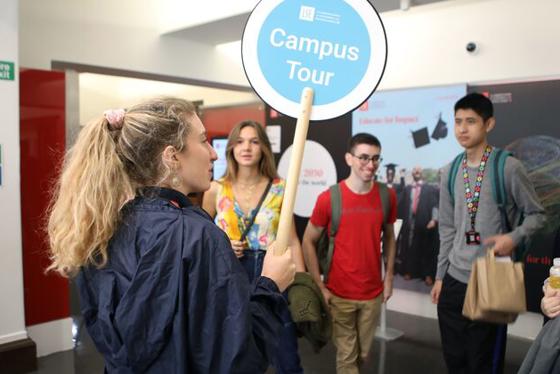

COMMENTS
Today's complex environmental, social and urban issues are best understood by researchers who can work across disciplinary boundaries, and who understand the relationship of research to action. The Urban and Environmental Planning and Policy (UEPP) doctoral program at UCI trains scholars in the analysis of social problems related to the built, natural, and institutional environments.
Full-time students are expected to take four courses, or 12 units, per semester. For the PhD in City & Regional Planning, students must complete various program requirements, including courses in planning and urban theory; research methods courses; and preparation and completion of two fields of specialization.
All Ph.D. students are guaranteed at least four years of funding through fellowships and graduate assistantships that provide year-round full tuition, a competitive stipend, and health and dental insurance. ... Ph.D. in Urban Planning and Development students focus on and develop substantive expertise in core areas that leverage the Price ...
We have 8 Urban Planning (fully funded) PhD Projects, Programmes & Scholarships. Show more Show all . More Details . PhD in Real Estate & Planning at Henley Business School. University of Reading Henley Business School. Join high calibre, doctoral candidates, from more than 25 countries in the world, and study at a triple-accredited global ...
Discover the best fully funded Urban Planning scholarships for Masters, Undergraduate and PhD programs in 2024 - 2025. Explore top opportunities for international students to advance their academic careers without financial stress. ... Central South University China International Graduate Scholarships 2025 (Fully Funded) 18 Dec 2024. Swansea ...
The SCaRP PhD program typically makes fully funded offers for the first four years of the program. Students receive a tuition waiver, discounted health insurance and monthly stipend while working 15-20 hours per week as graduate research assistants, as co-op students with local partners, as TAs or instructors for our graduate and undergraduate ...
You haven't completed your profile yet. To get the most out of FindAPhD, finish your profile and receive these benefits: Monthly chance to win one of ten £10 Amazon vouchers; winners will be notified every month.*; The latest PhD projects delivered straight to your inbox; Access to our £6,000 scholarship competition; Weekly newsletter with funding opportunities, research proposal tips and ...
MPhil/PhD in Regional and Urban Planning. The minimum entry requirement for this programme is a taught master's degree (or equivalent), with a minimum of 65 per cent average and at least 70 in the dissertation, in a related subject. Most students take four years to complete the PhD. 1+3 Route: MSc Regional and Urban Planning Studies (1 year ...
Applicants are generally required to hold a master's degree in a relevant field, such as urban planning, environmental policy, geography, or a related discipline. Strong academic performance, demonstrated through a competitive GPA and relevant coursework, is typically expected. ... Fully Funded PhD in Agricultural and Environmental Chemistry ...
Search Funded PhD Projects, Programmes & Scholarships in Architecture, Building & Planning, Urban Planning, fully funded in USA. Search for PhD funding, scholarships & studentships in the UK, Europe and around the world.